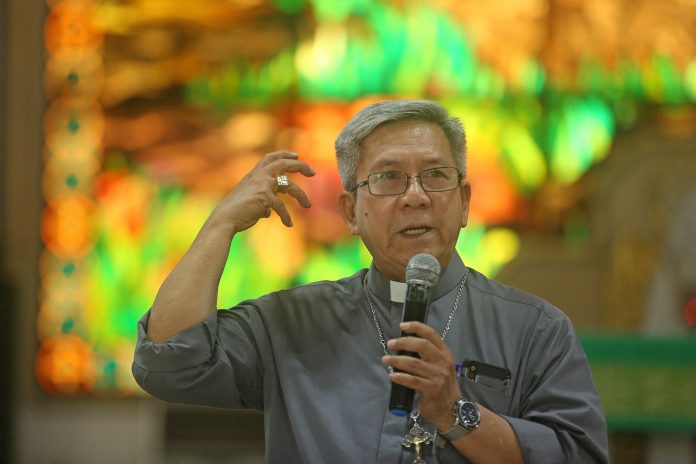A Catholic bishop in the southern Philippine region of Mindanao called for what he described as “peace spaces” in areas of conflict.
“I am suggesting … neutral, public places to be declared as peace spaces,” said Bishop Jose Colin Bagaforo of Kidapawan.
The prelate made the statement on December 1 during the annual observance of the “Mindanao Week of Peace.”
Bishop Bagaforo, who is also head of Caritas Philippines, said public places like churches, mosques, schools, and hospitals can be declared as “peace spaces.”
He said there should be no violence or disagreement that will harm innocent bystanders, ruin public infrastructures, and negatively affect the delivery of basic social services in “peace spaces.”
The prelate said that for peace to triumph, everyone must learn to “respect each other, to give each one a genuine sense of security and safety.”
“We must strive to look at one another with compassion and kindness,” said Bishop Bagaforo, urging everyone “to see people from the other side as our brothers and sisters, instead of enemies.”
“We will see the places we are in as common spaces where respect and trust are paramount, not as battlefields,” he said.
Bishop Bagaforo said the agenda at Caritas Philippines, the social action arm of the country’s Catholic bishops’ conference, is “to promote a culture of respect for life so eventually we will be able to live in peace.”
“Hopefully, with everyone’s help, we will be able to experience this in our lifetime,” said the prelate.
The observance of the Mindanao Week of Peace started in 2001 through a proclamation issued by former president Gloria Macapagal Arroyo.
It aims “to recognize the common aspirations of Mindanaoans to live in peace, unity, and harmony with each other regardless of status in life, religion or culture.”









